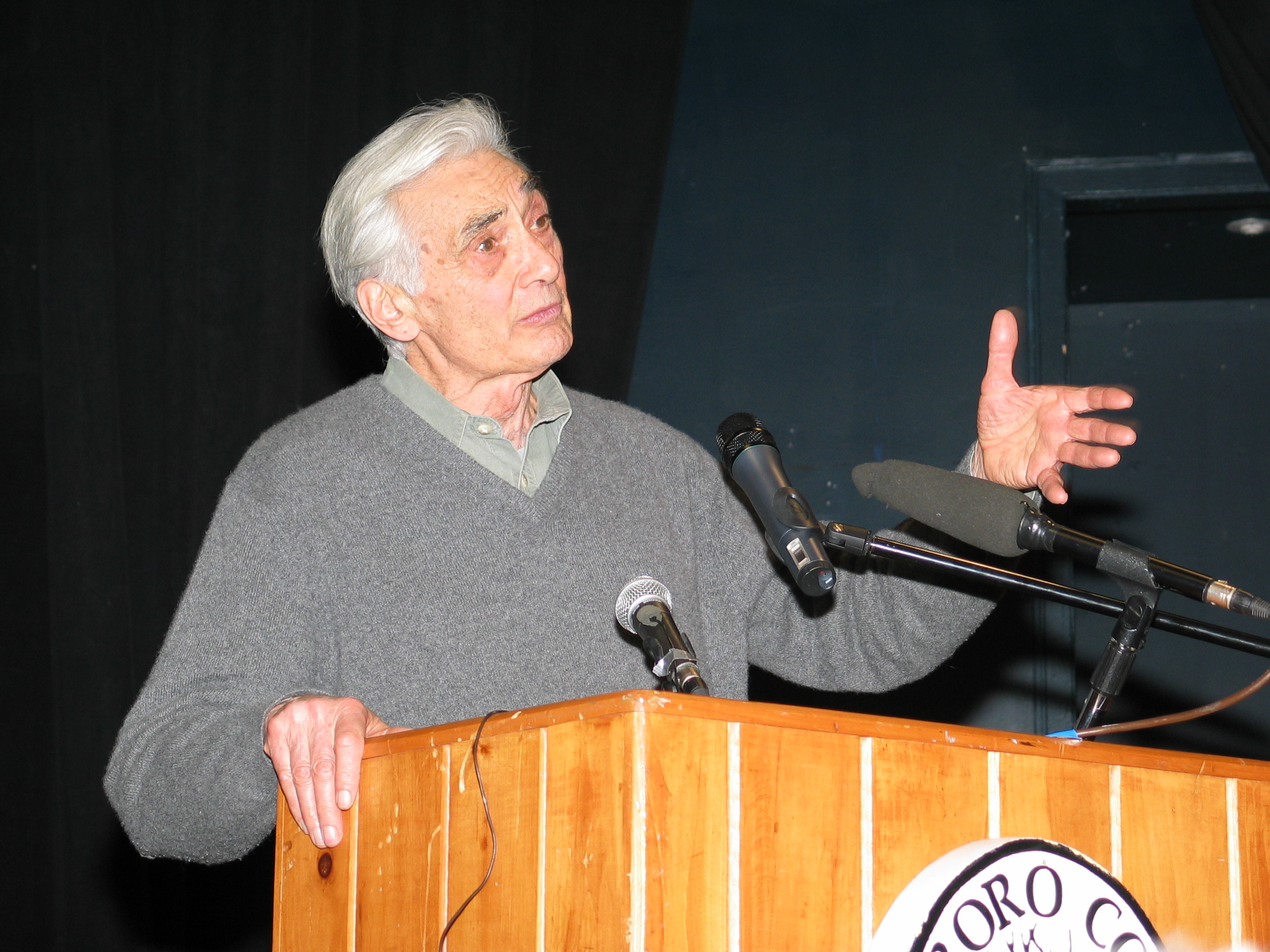|
An Appeal To The Young
An Appeal to the Young (French: ''Aux jeunes gens'') is a revolutionary, anarchist pamphlet published in 1880 and written by the Russian anarchist Peter Kropotkin. It is one of the most successful and moving tracts by Kropotkin in favor of a Socialized economy. Content The work has been appraised by numerous authors for its inspiration and devotion. Ruth Kinna, anarchist sympathizer, has written that this pamphlet "seeks to prompt individuals to enter into resistance struggles" and that it "emphasises the power of educated youth to alleviate the suffering of the poor." Legacy An Appeal to the Young is known for the vast net of influence that it cast upon the world of thought. Russia In Russia, Victor Serge read the pamphlet, and said that it inspired him to untold heights. He described it as "certainly one of the most moving exhortations of its kind." It convinced him to become a revolutionary socialist, but, more than that, "its message remained close to his heart for the r ... [...More Info...] [...Related Items...] OR: [Wikipedia] [Google] [Baidu] |
Peter Kropotkin
Pyotr Alexeyevich Kropotkin (9 December 1842 – 8 February 1921) was a Russian anarchist and geographer known as a proponent of anarchist communism. Born into an aristocratic land-owning family, Kropotkin attended the Page Corps and later served as an officer in Siberia, where he participated in several geological expeditions. He was imprisoned for his activism in 1874 and managed to escape two years later. He spent the next 41 years in exile in Switzerland, France (where he was imprisoned for almost four years) and England. While in exile, he gave lectures and published widely on anarchism and geography. Kropotkin returned to Russia after the Russian Revolution in 1917, but he was disappointed by the Bolshevik state. Kropotkin was a proponent of the idea of Libertarian socialist decentralization, decentralized communist society free from central government and based on voluntary associations of self-governing communities and worker-run enterprises. He wrote many books, pamp ... [...More Info...] [...Related Items...] OR: [Wikipedia] [Google] [Baidu] |
Le Révolté
''Le Révolté'' was an anarcho-communist journal started by Peter Kropotkin, along with François Dumartheray and Georg Herzig, in February 1879. The journal was partially funded by Elisée Reclus, Kropotkin's mentor. At the time of the journal's founding, Reclus and Kropotkin were living in the village of Clarens on Lake Geneva. The journal itself was published in Geneva. After Kropotkin was expelled from Switzerland and convicted in the Lyon trial of 1883 (for belonging to a defunct organization, i.e., The International), ''Le Révolté'' needed a new editor. Elisée Reclus, who had become quite friendly with Jean Grave, recommended Grave for the editorship and, after some hesitation, Grave accepted and moved to Geneva in 1883. Due to difficulties in getting the journal into France as well as Swiss police harassment, in 1885 Grave moved back to France with the journal. The last issue of ''Le Révolté'' was 14 March 1885. In 1887 the journal became ''La Révolte''. The sw ... [...More Info...] [...Related Items...] OR: [Wikipedia] [Google] [Baidu] |
Ruth Kinna
Ruth Ellen Kinna (born March 1961) is a historian and theorist of anarchism. She is Professor of Political Philosophy in the Department of Politics, History and International Relations of Loughborough University. She is also one of the two co-editors of the journal Anarchist Studies. Kinna holds a BA in history and politics from Queen Mary University of London and a D.Phil in politics from the University of Oxford on Kropotkin's theory of mutual aid. She joined Loughborough University in 1992, where she initially focused on the socialist thought of William Morris William Morris (24 March 1834 – 3 October 1896) was an English textile designer, poet, artist, writer, and socialist activist associated with the British Arts and Crafts movement. He was a major contributor to the revival of traditiona ... (1834–1896).Kinna, 2000. She has written and co-written many articles, books and contributions to books; also she has edited and co-edited several books on the hist ... [...More Info...] [...Related Items...] OR: [Wikipedia] [Google] [Baidu] |
Victor Serge
Victor Serge (; born Viktor Lvovich Kibalchich, ; 30 December 1890 – 17 November 1947) was a Belgian-born Russian revolutionary, novelist, poet, historian, journalist, and translator. Originally an anarchist, he joined the Bolsheviks in January 1919 after arriving in Petrograd (Saint Petersburg) at the height of the Russian Civil War. He worked for the Comintern as a journalist, editor, and translator and was an early critic of the emerging Stalinist regime. Serge joined the Left Opposition in 1923 and was expelled from the Communist Party in late 1927 or early 1928. He was imprisoned by the Soviet regime in 1928 and again from 1933 to 1936. Following an international campaign by prominent intellectuals, Serge was released from deportation in Orenburg and allowed to leave the Soviet Union in April 1936. During his subsequent exiles in France and Mexico, he continued to write extensively, producing critical analyses of the Soviet Union, several acclaimed novels depicting ... [...More Info...] [...Related Items...] OR: [Wikipedia] [Google] [Baidu] |
Ba Jin
Li Yaotang ( zh, s=李尧棠, t=李堯棠, p=Lǐ Yáotáng; 25 November 1904 – 17 October 2005), better known by his pen name Ba Jin ( zh, s=巴金, t=巴金, p=Bā Jīn) or his courtesy name Li Feigan ( zh, s=李芾甘, t=李芾甘, p=Lǐ Fèigān), was a Chinese anarchist, translator, and writer. In addition to his impact on Chinese literature, he also wrote three original works in Esperanto, and as a political activist he wrote '' The Family''. Name He was born as Li Yaotang, with alternate name Li Feigan or Li Pei Kan (in Wade–Giles). The first word of his pen name may have been taken from Ba Embo, his classmate who committed suicide in Paris, which was admitted by himself, or from the first syllable of the surname of the Russian anarchist Mikhail Bakunin; and the last character of which is the Chinese equivalent of the last syllable of Russian anarchist Peter Kropotkin (克鲁泡特金, Ke-lu-pao-te-jin). Biography On November 25, 1904, Li Yaotang was born in Cheng ... [...More Info...] [...Related Items...] OR: [Wikipedia] [Google] [Baidu] |
Olivia Rossetti Agresti
Olivia Rossetti Agresti (1875–1960) was a British activist, author, editor, and interpreter. A member of one of England's most prominent artistic and literary families, her unconventional political trajectory began with anarchism, continued with the League of Nations, and ended with Italian Fascism. Her involvement with the latter led to an important correspondence and friendship with Ezra Pound Ezra Weston Loomis Pound (30 October 1885 – 1 November 1972) was an List of poets from the United States, American poet and critic, a major figure in the early modernist poetry movement, and a Collaboration with Nazi Germany and Fascist Ita ..., who mentions her twice in '' The Cantos''. While still in their girlhood, Olivia and her sister, the future Helen Rossetti Angeli (1879–1969), began publishing an anarchist journal, ''The Torch''. Years later, using the pseudonym "Isabel Meredith", Olivia and Helen published ''A Girl Among the Anarchists'', a somewhat fictionalized ... [...More Info...] [...Related Items...] OR: [Wikipedia] [Google] [Baidu] |
Charles H
Charles is a masculine given name predominantly found in English and French speaking countries. It is from the French form ''Charles'' of the Proto-Germanic name (in runic alphabet) or ''*karilaz'' (in Latin alphabet), whose meaning was "free man". The Old English descendant of this word was '' Ċearl'' or ''Ċeorl'', as the name of King Cearl of Mercia, that disappeared after the Norman conquest of England. The name was notably borne by Charlemagne (Charles the Great), and was at the time Latinized as ''Karolus'' (as in ''Vita Karoli Magni''), later also as '' Carolus''. Etymology The name's etymology is a Common Germanic noun ''*karilaz'' meaning "free man", which survives in English as churl (James (wikt:Appendix:Proto-Indo-European/ǵerh₂-">ĝer-, where the ĝ is a palatal consonant, meaning "to rub; to be old; grain." An old man has been worn away and is now grey with age. In some Slavic languages, the name ''Drago (given name), Drago'' (and variants: ''Drago ... [...More Info...] [...Related Items...] OR: [Wikipedia] [Google] [Baidu] |
Howard Zinn
Howard Zinn (August 24, 1922January 27, 2010) was an American historian and a veteran of World War II. He was chair of the history and social sciences department at Spelman College, and a political science professor at Boston University. Zinn wrote more than 20 books, including his best-selling and influential ''A People's History of the United States'' in 1980. In 2007, he published a version of it for younger readers, ''A Young People's History of the United States''. Zinn described himself as "something of an anarchist, something of a socialist. Maybe a democratic socialist." He wrote extensively about the civil rights movement, the Peace movement, anti-war movement and labor history of the United States. His memoir, ''You Can't Be Neutral on a Moving Train'' (Beacon Press, 1994), was also the title of a Howard Zinn: You Can't Be Neutral on a Moving Train, 2004 documentary about Zinn's life and work. Zinn died of a heart attack in 2010, at the age of 87. Early life Zinn wa ... [...More Info...] [...Related Items...] OR: [Wikipedia] [Google] [Baidu] |
Sunder Lal
Sunder Lal ( – 3 January 1987) was an Indian independence activist and politician. A member of the Indian National Congress, he served as a Member of Lok Sabha six times. For the first 5 Lok Sabha elections, Lal represented the Saharanpur constituency of Uttar Pradesh. Early life and education Lal was born in village Baliakheri, Saharanpur district in the state of Uttar Pradesh. He participated in the Indian independence movement and after Indian independence he joined active politics. Political career Lal was Member of Parliament for five straight terms (1952–1977) from Saharanpur, and after losing from Haridwar in 1977, won that seat in 1984. During the 1st Lok Sabha, Saharanpur constituency was differently defined. Lal represented the "Saharanpur (West) cum Muzaffarnagar (North)" constituency during the 1st Lok Sabha. He was a member of a Congress party. And was supposed to be close to Indira Gandhi and Hemvati Nandan Bahuguna. Posts held See also * 1st, 2 ... [...More Info...] [...Related Items...] OR: [Wikipedia] [Google] [Baidu] |


